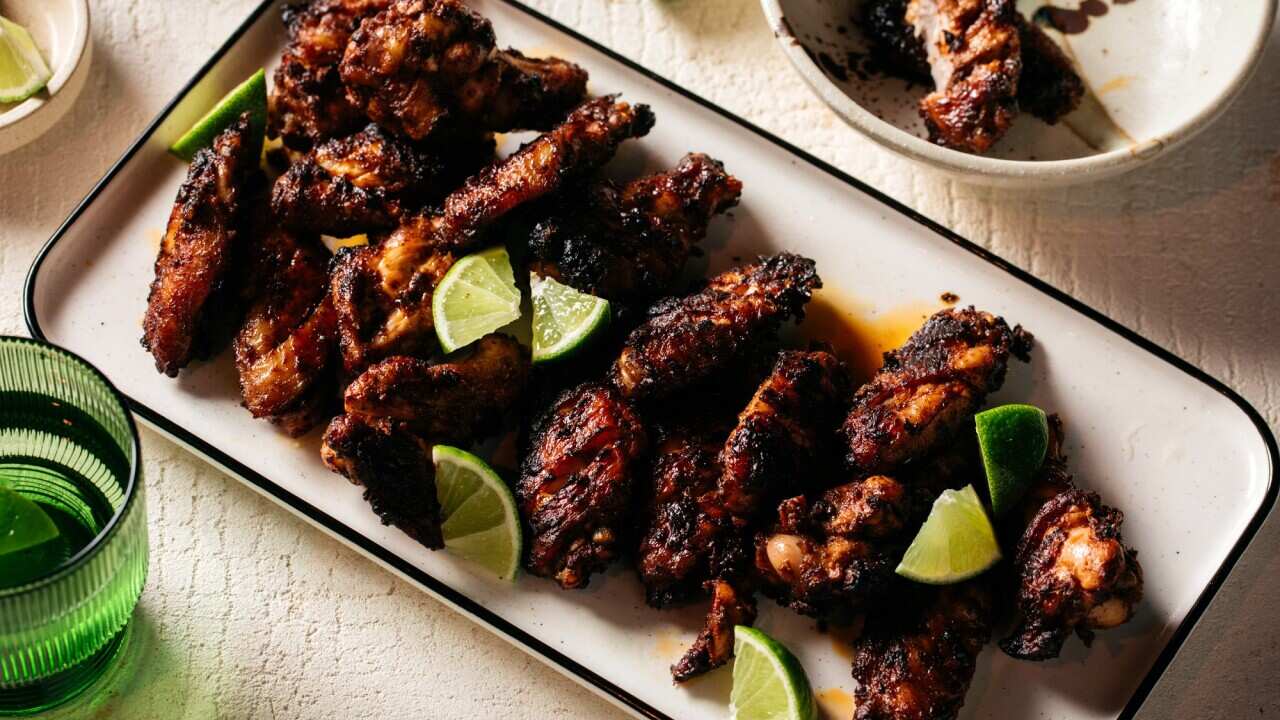It doesn’t matter what alcohol you drink, whether it’s a light vodka and tonic with a squeeze of lime or a hearty glass of red wine, alcohol is the sworn enemy of weight loss regimes.
“Most weight loss programs shun the demon drink but what makes it so damaging to our waistlines?” asks in episode five of, airing on SBS on Thursday 29 March at 8.35pm.
In a bid to understand what the real issue with alcohol is, Dr Xand joins , to investigate the underlying mechanisms that determine weight gain from alcohol consumption.
Apparently, the real issue with alcohol is that it alters the way our body processes food.
“Alcohol is absorbed by the stomach and goes to the liver,” says Dr Patel on The Diet Testers.
“The liver is central to metabolism: carbohydrates, protein and fat metabolism all occurs in the liver. But we don’t have a mechanism for storing alcohol. It’s like a toxin [in our bodies] and it has to be cleared. So then the metabolism of fat and sugars has to wait until we can clear all the alcohol [from our liver] first.”
Alcohol is absorbed by the stomach and goes to the liver.
To demonstrate how alcohol actively gets in the way of our body burning calories, Dr Patel conducts a flaming experiment. He burns cubes of paraffin to represent the body’s metabolism processes. Then he looks at how it behaves when tasked with metabolising (or in this case, burning) sugar and fat.
“Because fat is so slow to break down, when sugar is added to [the mix to represent carbohydrates], it jumps the metabolism queue and burns first, ahead of the fat,” Dr Xand says.
“The sugar [in this experiment] burns much more quickly, which is what happens in your body. If you eat a donut you will burn the sugar before you burn the fat.”
Next, Dr Patel adds alcohol to the mix in the form of an expensive brandy.
“If we add the alcohol to this, the alcohol burns first of all,” Dr Patel says. “So whenever we have a drink with a meal, the alcohol will be metabolised first. Whereas the fat and sugar has to wait until we clear the alcohol from our system."
While alcohol is being metabolised, sugar and fat is sitting in your body not being used or stored appropriately, so it’s swirling around in your blood stream. The interrupted metabolisation of sugar and fats – caused by alcohol consumption – can result in weight gain.
So whenever we have a drink with a meal, the alcohol will be metabolised first. Whereas the fat and sugar has to wait until we clear the alcohol from our system.
On top of that, Dr Patel adds, “because alcohol is highly calorific, ultimately you are storing more and more calories as fats in the body”.
Alcohol contains no nutrients and is typically high in calories. Drinking alcohol can also interfere with your blood sugar levels and excessive alcohol consumption can
Although alcoholic consumption impacts on your metabolism, the evidence on the exact effect of alcohol on weight gain (note: not weight loss or dieting attempts) is mixed. The impact depends on how much alcohol is drunk, the regularity of consumption, genetics, lifestyle and your overall state of health.
says that moderate intake of alcohol with food may not lead to weight gain in the short-term, if an individual does not drink excessive amounts and enjoys a healthy lifestyle.
However, the study concludes that alcohol consumption “has probably contributed to the excess energy intake associated with weight gain in some individuals over the past years".
“…Moderation in drinking is still an important recommendation, together with a healthy lifestyle not conducive to weight gain.”
According to on drinking alcohol, the lifetime risk of harm from drinking alcohol increases with the amount consumed. It’s recommended that ‘healthy’ men and women drink no more than two standard drinks on any day to reduce the risk of disease or alcohol-related injury.
Want to know more about what's behind some of the most popular dieting methods around? Watch the new season of 'The Diet Testers', airing on Thursdays at 8.35pm on SBS from 1 March.

















